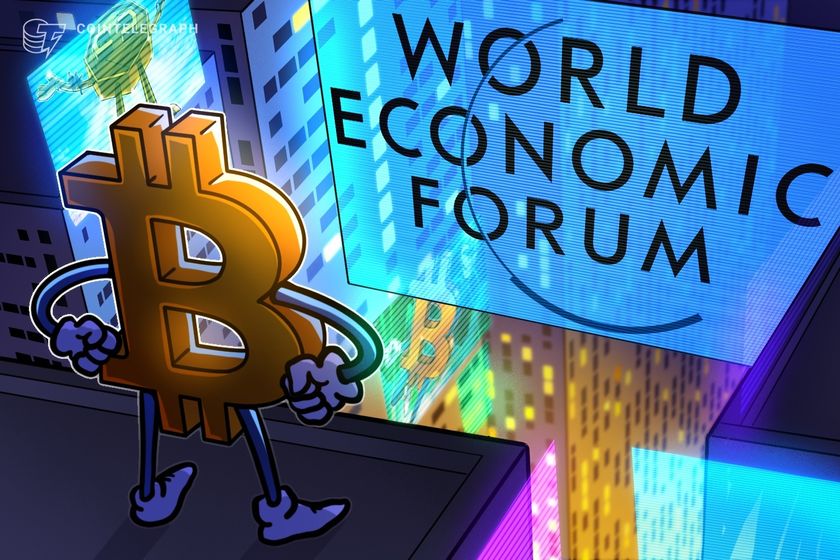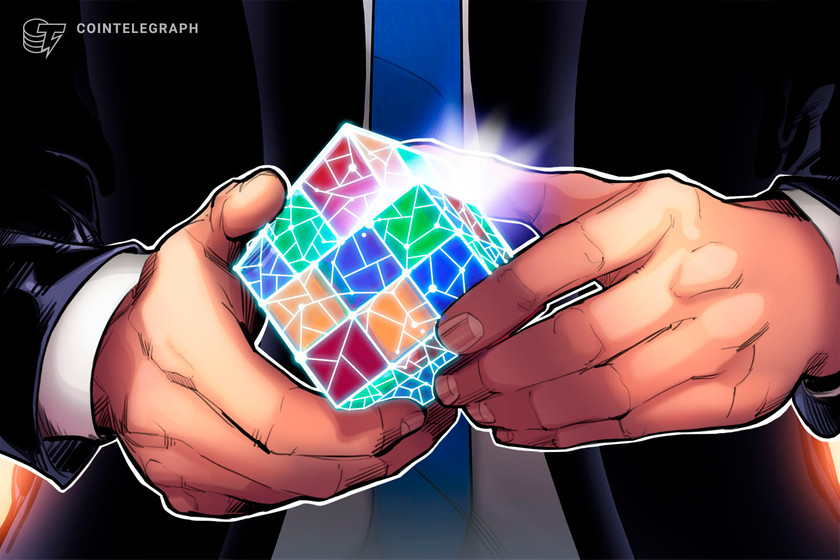
The CEO of NFT marketplace Magic Eden said NFT creators “need a sustained revenue model” and with “no way” of currently enforcing royalties a “new asset class” could emerge to enforce them.
Royalty enforcing NFTs to be a ‘new asset class’: Magic Eden CEO
Jack Lu, the CEO of Solana-based nonfungible token (NFT) marketplace Magic Eden has floated the idea of NFTs designed to enforce royalties.
Lu said in an address at Solana’s Breakpoint 2022 conference on Nov. 5 that these NFTs could “give rise to a new asset class” as the space grapples with the debate around opt-in royalties.
He added that “creators need a sustained revenue model” and while royalties were one of those models there is “no way” to enforce them with the “current design” but added there are “many new innovations that could be made available to them.”
Lu noted that over the past months, Magic Eden had spoken to “dozens, if not 100” NFT creators across differing NFT use case and that they found their needs “actually are very, very divergent.”
“There is a real opportunity to give rise to a new asset class, and this asset class will have special properties but also have special trade-offs. So it could enforce royalties at a technological high technological level.”
Those “trade-offs” would mean NFT creators would have “some level of control” Lu explained but added in the talks Magic Eden had with creators and holders that they were “willing to accept some of these trade-offs” in order to ensure that they could bring their business models to fruition.
According to Lu, Magic Eden is set to launch an asset “next week” that can enforce royalties in partnership with Cardinal, a protocol enabling NFT conditional ownership and the privacy-oriented browser Brave.

South Korea tests buying NFTs with CBDC
The Bank of Korea (BOK) — South Korea’s central bank — has reportedly tested buying NFTs with its Central Bank Digital Currency (CBDC) according to a Nov. 7 report from Yonhap News.
The BOK said it had completed a simulation and research project carried out over the past ten months since Aug. 2021, creating a simulated environment for its CBDC using distributed ledger technology (DLT).
The project tested the usual functions needed for a digital currency, including issuing, transacting and remittances using the digital won, while the report also noted that “the process of purchasing NFTs with CBDCs was also implemented.”
It’s reported that this process was done through the simulated environment and a “digital asset system” built using differing DLT platforms with smart contract functionality, without going into further detail.
The BOK also tested the possibility of applying Zero Knowledge Proofs (ZKPs) to strengthen the protection of personal information. ZKP protocols can be used for forms of digital identities with some iterations using NFTs as a digital ID solution, although it's unknown if the NFTs transacted in the project were related to digital identities.
South Korea has stated its plan to allow its citizens access to blockchain-powered digital IDs in 2024 that could be used in finance, healthcare, taxes, and transportation.
TinyTap NFTs sell out giving over $100K to teachers
An NFT project by Animoca Brands in conjunction with its subsidiary TinyTap has seen six NFTs featuring a children’s educational course sell at auction for a total of around 138 Ether (ETH) — around $228,000, Animoca said on Nov. 7.
The project was created as a way for educators to create content and receive a share of revenues when their course is purchased and used by learners according to Animoca.
The six teachers who created the courses were given a 50% cut of thes sale of the NFT, generating them around $111,000 in ETH, while the teachers will also receive a 10% ongoing share of revenue by their course.

Animoca calls the NFTs “Publisher NFTs” with each representing co-publishing rights to a course — which is a bundle of education-based games on a specific subject created by a teacher.
The NFT owner is expected to promote their course and share the revenue and is entitled to keep up to 80% of future revenue generated by their own marketing and publishing of the course.
Trademark filings show Rolex is timing a Metaverse play
Rolex isn’t wasting any time gearing up to launch a Web3 play with trademark filings showing the luxury watch brand is ready to tick over into the Metaverse.
The United States Patent and Trademark Office (USPTO) filings shared by trademark attorney Mike Kondoudis on Twitter show Rolex is ticking off a list of crypto and NFT-related trademarks to protect its brand across virtual realms.
Luxury watchmaker #ROLEX has filed a trademark application claiming plans for:
— Mike Kondoudis (@KondoudisLaw) November 7, 2022
⌚️ NFTs + NFT-backed media + NFT marketplaces
⌚️ Crypto keys and transactions
⌚️ Virtual goods auctions
⌚️ Virtual and cryptocurrency exchange + transfer#NFTs #Metaverse #Crypto #Web3 #Perpetual pic.twitter.com/J8C93Qcybj
The filings suggest Rolex wants to offer NFTs, crypto wallets, crypto transactions and hints at a potential metaverse as it wishes to provide an “online space for buyers and sellers” and hold “virtual interactive auctions” although time will tell what type of online space Rolex may build.
More Nifty News:
Companies are showing a big appetite for trademark applications as crypto, Web3, and related filings have soared in 2022, reaching 4,708 at the end of October compared to the 3,547 filed in all of 2021.
Related: NFTs still in ‘great demand’ as unique traders rise 18% in Oct: DappRadar
The Chinese city of Wuhan, the epicenter of the COVID-19 breakout, has reportedly axed its NFT plans aimed to boost its economy ruined by the pandemic amid increasing regulatory uncertainty on crypto and Web3 technologies in the country.











